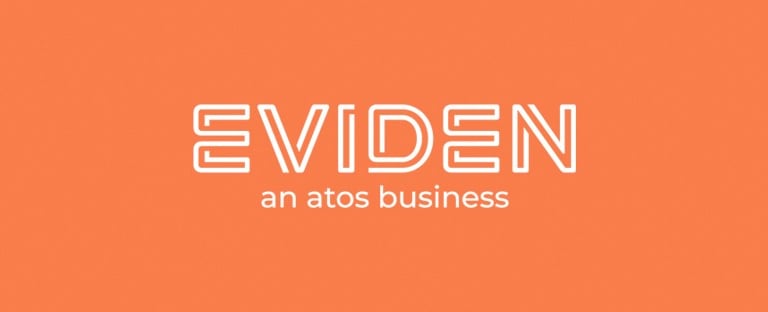

Eviden, formerly known as Atos' Digital, Big Data and Security (BDS) division, has emerged as a significant player in the quantum computing landscape. As a global leader in digital transformation and high-performance computing, Eviden has been at the forefront of developing quantum computing technologies and services. The company's quantum initiatives represent a comprehensive approach to quantum technology, encompassing hardware simulation, software development, and the exploration of practical quantum applications.
At the core of Eviden's quantum strategy is the development of quantum simulators and emulators. These powerful classical systems are designed to mimic the behavior of quantum computers, allowing researchers and developers to experiment with quantum algorithms and applications without the need for actual quantum hardware. This approach has positioned Eviden as a key enabler in the quantum computing ecosystem, bridging the gap between theoretical quantum algorithms and practical implementation.
A significant milestone in Eviden's quantum journey was the launch of the Quantum Learning Machine (QLM) in 2017. The QLM is a complete quantum software stack and high-performance quantum simulator, capable of simulating up to 41 quantum bits (qubits). This platform has been continually updated and improved, with more recent versions offering even greater capabilities.
Eviden's quantum computing research extends beyond simulation and emulation. The company is actively exploring quantum algorithms and their potential applications in various fields, including finance, life sciences, energy, and aerospace. This application-focused approach aims to identify areas where quantum computing can provide tangible benefits to businesses and society.
The company has also been fostering collaboration within the quantum ecosystem. Through partnerships with academic institutions, research organizations, and industry players, Eviden is contributing to the advancement of quantum science and its practical applications. These collaborations extend globally, reflecting the international nature of quantum research and development.
## Technical Deep Dive
Eviden's quantum efforts are primarily focused on quantum simulation and software development. The centerpiece of their quantum portfolio is the Quantum Learning Machine (QLM). The QLM is not a quantum computer itself, but a high-performance quantum simulator and complete programming environment designed to emulate the behavior of quantum systems.
Key features of the Quantum Learning Machine include:
1. High-Performance Simulation: The QLM can simulate up to 41 qubits, making it one of the most powerful quantum simulators available. This capability allows researchers to test and optimize quantum algorithms that are beyond the reach of current physical quantum computers.
2. Universal Quantum Assembly Language (AQASM): Eviden has developed AQASM, a hardware-agnostic quantum programming language. This allows developers to write quantum algorithms that can, in principle, run on any quantum hardware.
3. Quantum Programming Framework: The QLM includes a comprehensive set of tools for quantum circuit design, algorithm development, and results analysis. It supports multiple programming languages, including Python.
4. Noise Simulation: The QLM can simulate various types of quantum noise, allowing researchers to test the robustness of their algorithms under realistic conditions.
Eviden has also developed myQLM, an open-source version of their quantum programming framework. This initiative aims to make quantum programming more accessible to a broader community of developers and researchers.
In terms of quantum algorithms and applications, Eviden is exploring several key areas:
1. Quantum Finance: Developing quantum algorithms for portfolio optimization, risk analysis, and fraud detection in financial services.
2. Quantum Chemistry and Life Sciences: Using quantum simulations for molecular modeling, potentially accelerating drug discovery and materials science research.
3. Quantum-Enhanced Machine Learning: Investigating how quantum computing might improve various machine learning tasks, such as data classification and pattern recognition.
4. Quantum Optimization: Exploring quantum algorithms for solving complex optimization problems in logistics, supply chain management, and energy distribution.
Eviden's approach to quantum error correction and fault tolerance is primarily focused on simulation and algorithm development. They are researching various quantum error correction codes and their implementation in quantum algorithms. This work is crucial for understanding how future fault-tolerant quantum computers might perform and for developing algorithms that can run effectively on noisy intermediate-scale quantum (NISQ) devices.
The company has also made significant contributions to quantum benchmarking. They have developed metrics and methodologies for assessing the performance of quantum systems, which is crucial for comparing different quantum technologies and tracking progress in the field.
Eviden is actively involved in quantum education and workforce development. They offer training programs and resources to help organizations prepare for the quantum era. This includes courses on quantum programming, algorithm development, and the potential applications of quantum computing in various industries.
In addition to its work on gate-based quantum computing, Eviden has also shown interest in other quantum technologies:
1. Quantum Annealing: Exploring the potential of quantum annealing for optimization problems, particularly through partnerships with D-Wave Systems.
2. Quantum Communication: Investigating quantum key distribution (QKD) and other quantum-safe cryptography methods to enhance data security in the post-quantum era.
Eviden's quantum computing efforts extend to integration with classical high-performance computing (HPC) systems. They are exploring hybrid quantum-classical approaches that leverage the strengths of both quantum and classical computing paradigms. This includes developing frameworks for seamlessly integrating quantum algorithms into classical HPC workflows.
The company is also at the forefront of developing quantum-inspired algorithms. These are classical algorithms that borrow concepts from quantum computing to solve certain problems more efficiently on classical hardware. This approach allows organizations to potentially reap some of the benefits of quantum computing using existing classical infrastructure.
As quantum computing continues to evolve, Eviden's comprehensive approach - encompassing simulation, software development, algorithm research, and application exploration - positions the company as a key enabler in the quantum computing ecosystem. While challenges remain in scaling up quantum systems and achieving practical quantum advantage, Eviden's progress in quantum simulation and software development provides valuable tools for researchers and organizations preparing for the quantum future.Write your text here...
